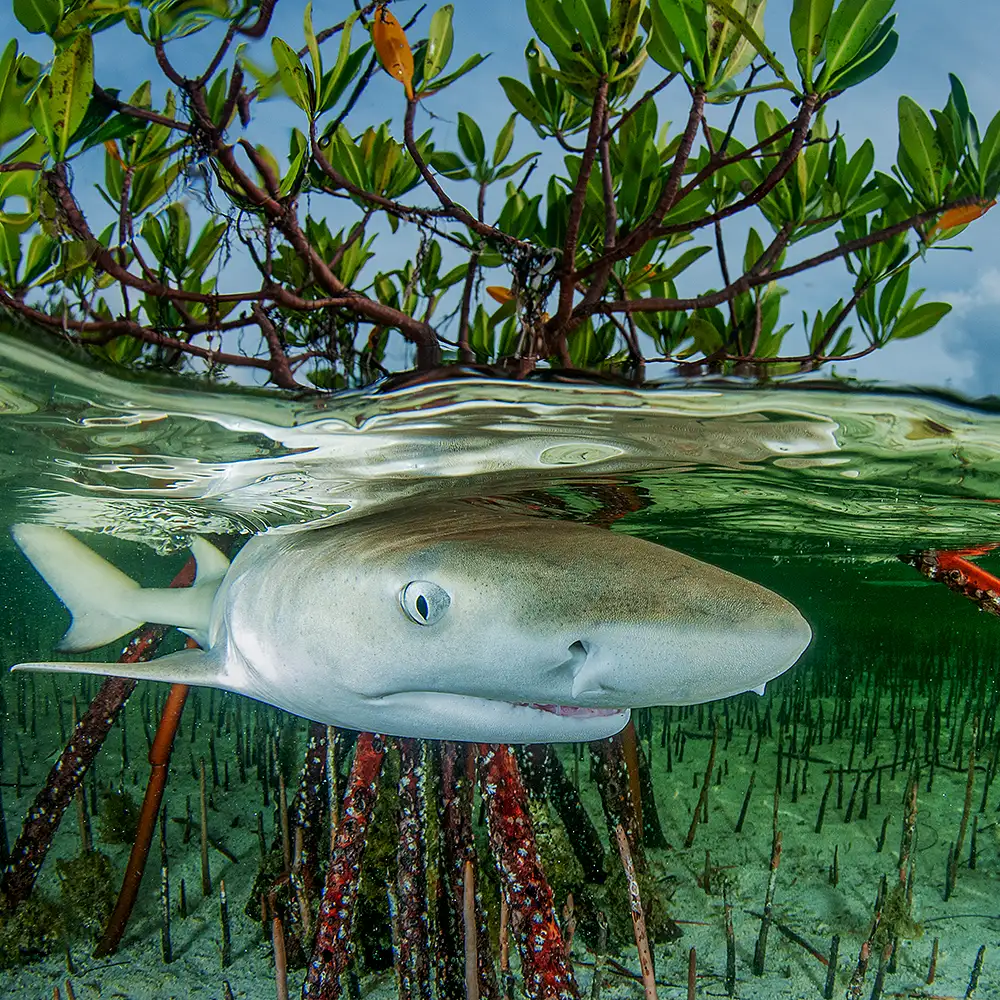Despite its economic benefits, unsustainable shrimp farming has severely impacted ecosystems and biodiversity. Indonesia alone has led to the damage or degradation of approximately 70% of the country’s vital mangrove forests.
A sustainable, nature-based solution for people and planet
Shrimp farming has surged globally over recent decades, making it one of the world’s most widely traded seafood products.
Project Info
More information
Curious about their business model? Explore the BNCFF Blueprint on sustainable shrimp farming. Download the impact reports for deeper insights into the difference this project has made for nature and people.
Podcast
Our Investing for Ocean Impact podcast series explores all aspects of Blue Carbon, including investment strategies, financing solutions, project management, and how local communities can participate and benefit. In the episodes below, we talk about the ideas behind Nature-based Solutions as long-term investments:
Selva shrimp: A model for sustainable aquaculture in Kalimantan
Shrimp aquaculture doesn’t have to harm ecosystems. It can provide resilient income streams in regions with limited economic opportunities while supporting biodiversity when carefully implemented. Blueyou is expanding its successful “Selva Shrimp” model in North Kalimantan, Indonesia. Selva Shrimp emphasizes high-quality, sustainable seafood production for a high-end market by combining a no-input aquaculture approach with mangrove conservation and restoration.
By incentivizing local shrimp farmers to replant mangroves around their ponds, this initiative enhances the forest’s ability to deliver ecosystem services and increases the natural productivity of the shrimp farms. With sustainable management, increased productivity leads to higher shrimp yields, allowing farmers to boost their income without additional costs.
How BNCFF supports sustainable aquaculture expansion in North Kalimantan
Funding from the Blue Natural Capital Financing Facility (BNCFF) strengthens the business case for expanding sustainable shrimp farming across Kalimantan. BNCFF supports feasibility assessments to explore the addition of carbon credits as a supplementary income stream alongside strategic planning for broader implementation. Further, BNCFF funds investigations into sustainable seafood certifications to enhance the shrimp’s positioning as a high-end, eco-friendly product. With a proven model in Kalimantan, Blueyou aims to expand regionally, leveraging private and public investments.
Impacts created
Nature
People
Business
Calls for Proposals
There are no open calls for proposals. Sign up for email alerts to be notified of the next call and receive updates on BNCFF and BCAF projects, lessons learned, and more, or email us at bluenaturalcapital@iucn.org.

































